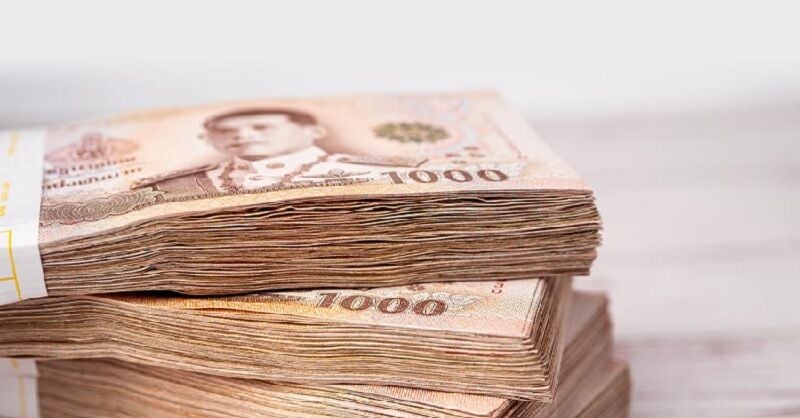Stark Corporation scandal costs 14.7 billion baht

Shareholders and stock investors of Stark Corporation are reeling from an accounting and embezzlement scandal that has incurred damages estimated at a staggering 14.7 billion baht. This debacle has impacted 4,704 shareholders and led to the prosecution of the former chairman and several top executives in what is deemed one of Thailand’s largest corporate frauds in recent years.
Adding to the turmoil, the Securities and Exchange Commission (SEC) accused the management of Energy Absolute (EA), a prominent renewable energy company, of equipment procurement fraud. The allegations led to the resignations of founder and former chief executive Somphote Ahunai and his deputy Amorn Sapthaweekul. The SEC’s case, now with the Department of Special Investigation and Anti-Money Laundering Office, implicates a third person, with the trio allegedly benefiting to the tune of 3.5 billion baht.
The SEC’s accusations arrive amid a bearish sentiment in the Thai bourse, with the index down about 8% this year. The EA case has intensified scrutiny over the supervision of companies on the Stock Exchange of Thailand (SET) and the steps needed to restore market confidence.
Siam Commercial Bank (SCB), EA’s primary creditor, has extended a 13 billion baht credit line to EA, which remains classified as a performing loan. SCB’s CEO, Kris Chantanotoke, noted that the bank has set aside appropriate reserves considering EA’s risk profile and continues to view the company’s potential positively due to growth prospects in the renewable energy sector.
“SCB has tightened its loan approval process in response to the current economic conditions. Additionally, the bank remains focused on maintaining strong governance across all businesses.”
The allegations against EA have repercussions beyond shareholders and investors, affecting bondholders and creditors as well. EA’s loans from financial institutions and debentures total 62.2 billion baht, about 89% of its total debt, with 19.5 billion baht being short-term debt. EA plans to sell 5.5 billion baht of green bonds, but the downgrade by Tris Rating from BBB+ (negative) to BB+ (negative) has complicated these plans.
Financial strength
In response to the scandal, EA is negotiating with strategic partners to bolster its financial strength and sustain long-term business. EA stock experienced a significant plunge of about 30% last week following a trading suspension, while SCB shares remained flat after initial declines.
The Association of Investment Management Companies placed EA bonds on the restricted list, limiting transactions until the company’s future prospects are clear. KGI Securities’ Senior Vice-President Rakpong Chaisuparakul advised caution on Thai banks due to the potential ripple effects of the SEC’s accusations on EA’s ability to service its debts.
Asia Plus Securities echoed this sentiment, noting the negative market impact stemming from the fraud allegations against EA executives, especially while the company is issuing new debentures and redeeming existing bonds.
The director of the securities analysis department at Yuanta Securities, Nattaphon Khamthakruea pointed out that the uncertainty surrounding EA’s debts has caused panic among investors, leading to a significant sell-off in banking stocks. However, he noted that banks have learned to diversify their portfolios and that the impact on banking stocks should be short-term.
Ariya Tiranaprakij, Executive Vice-President of the Thai Bond Market Association, emphasised the need for EA to restore investor confidence, noting that the company’s assets and operations still generate cash flows, distinguishing it from the more severe Stark case.
The urgent task for the company is to bring back confidence from investors, creditors, and other stakeholders as Ariya stated.
Misappropriating funds
The distancing EA from the Stark scandal, Somphote Ahunai, highlighted the value and profitability of EA’s assets and operations as he announced his resignation. The Stark scandal, which came to light earlier this year, involved falsifying financial statements and misappropriating funds, leading to significant shareholder losses.
Despite the similarities in fraudulent activities, analysts noted that EA’s situation differs as it still possesses valuable assets and stable income from its energy business. The company is actively seeking new business partners to navigate its current challenges.
Sanan Angubolkul, Chairman of the Thai Chamber of Commerce, urged investors not to generalise the EA case as a market-wide issue, emphasizing the importance of good corporate governance in preventing such scandals.
Thai officials, including the SEC, are now considering stricter measures to prevent fraud and corruption among listed companies. Lavaron Sangsnit, permanent secretary at the Finance Ministry, stressed the need for thorough oversight to restore confidence in the capital market.
Waratchya Srimachand, Deputy Secretary-General of the SEC, admitted that the EA case has shaken investor confidence but assured that the SEC is closely monitoring the situation.
EA is striving to regain investor trust by focusing on its strengths in clean energy and adhering to environmental, social, and governance (ESG) standards. Vasu Klomkliang, who succeeded Amorn Sapthaweekul as EA’s new chief financial officer, expressed confidence in the company’s ability to overcome the current challenges.
One of the best solutions to this problem is to restore public trust in the company as Vasu stated.
Carbon neutrality
EA remains committed to its goal of achieving carbon neutrality by 2045 and a net-zero target by 2060. Despite the current turmoil, the company expects to continue generating significant revenue and successfully issuing new debentures.
HSBC Thailand’s Krisda Phatcharoen emphasised the importance of good governance and transparency in securing better access to financial services. HSBC has implemented stringent risk assessment and compliance processes to ensure corporate clients meet ESG criteria.
As EA navigates through this crisis, its ability to restore investor confidence and maintain strong governance will be crucial in determining its long-term success, reported Bangkok Post.
Latest Thailand News
Follow The Thaiger on Google News:


























